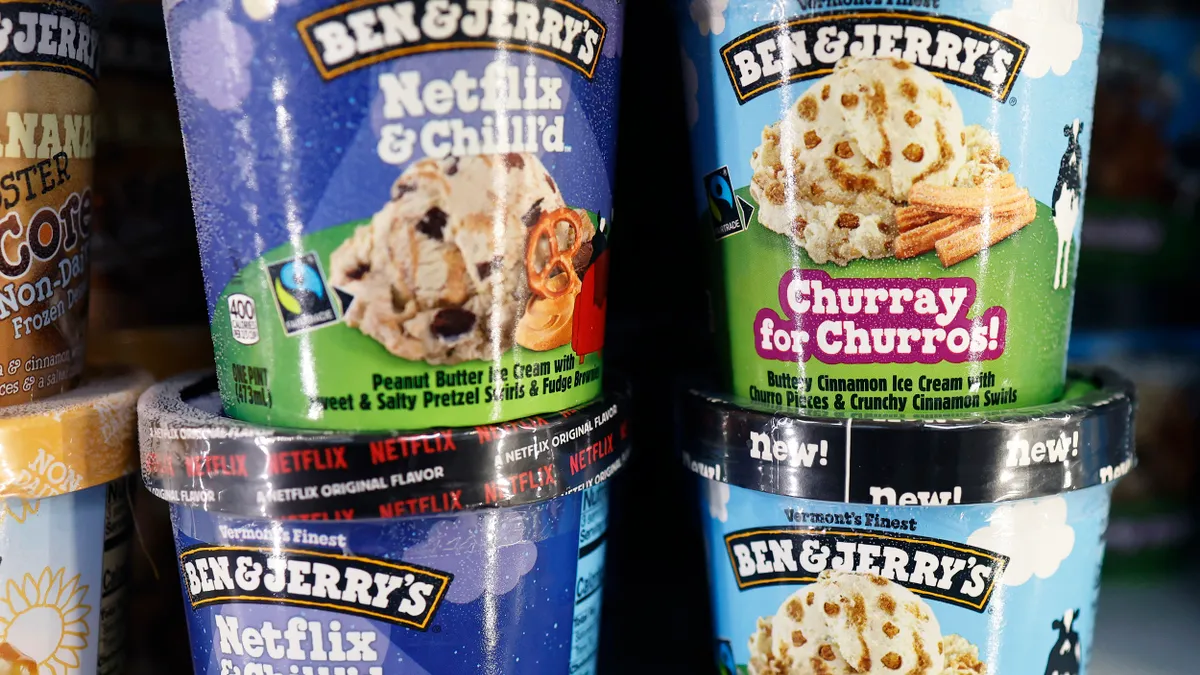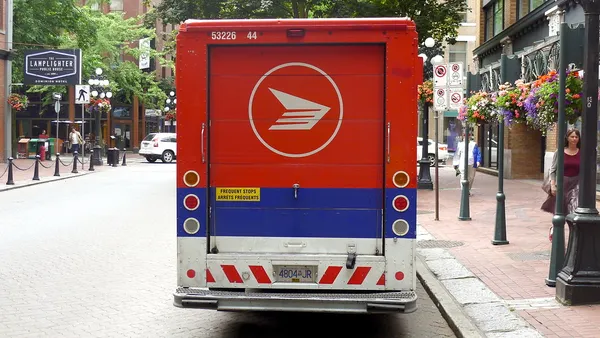LAS VEGAS — Unilever wants to leave no stone unturned when it comes to implementing artificial intelligence throughout its ice cream supply chain, executive Sandeep Desai said during a panel at Manifest 2025 last week.
The CPG giant currently uses AI to analyze weather data to develop more accurate volume forecasts and limit waste, as ice cream demand is influenced by temperature, according to a January news release. It also leverages AI in its freezer cabinets for real-time inventory updates and in its factories for more efficient production.
"We're trying to integrate it end to end, so all the way from suppliers to the consumer," said Desai, EVP and chief product supply chain officer for the company's ice cream business.
But emerging technologies haven't solved every supply chain challenge for the ice cream supply chain. One area the company is still trying to improve its visibility is in the final mile of delivery, typically from a customer's distribution center to a freezer, according to Desai. He said the company could gain that additional tracking capability via connected sensors "that can talk directly to the cloud," but a cost-effective deployment of that technology remains a hurdle.
"If we were transporting diamonds, it's cheap, the technology is available, it's there. We can do it," Desai said. "When you're transporting ice cream, where every mom and pop believes they can make ice cream too, it's quite a margin-sensitive game, and so the cost of the technology is what needs to come [down]."
Fleet management remains "the trickiest aspect" of integrating AI capabilities into supply chains, according to Desai. Implementing real-time monitoring across all trucks hauling Unilever's ice cream means collaborating with a fragmented mix of both large trucking carriers and owner-operators, he noted.
"If you look at ocean freight today versus what it was a few years ago, significant strides have been made,” Desai said, adding that the company hasn’t seen the same in trucking.
Even with cost and integration challenges, Desai said experimenting with and piloting new technology is important. Costs will fall as those initial programs progress and scale, the supply chain executive said, using Unilever's work with machine learning and AI for demand planning as an example.
"We've got to have faith in that process. We can't give up on piloting. We can't give up on scaling. And I think the key is partnerships," Desai said. "You really need to find the right partner that also sees a longer-term vision. It's not a short-term game. It's about the long term."
One long-term priority for Unilever's ice cream business is more automation within its network of warehouses. Highly automated "dark" warehouses using technology like drones for stock management will become increasingly important in cold chain logistics, particularly to offset recruiting challenges tied to work in low-temperature environments, Desai said.
Within Unilever's ice cream business, about 10% of its warehouses are currently dark, and the company is pushing to grow that percentage in the next several years, he added.
"My vision is all warehouses should be 100% dark," Desai said.
Unilever's ice cream business is slated to be spun off from the rest of the CPG giant by the end of this year, a move that could introduce supply chain efficiencies. In 2024, the segment's underlying sales grew 3.7% due to "strong innovations and operational improvements," according to an earnings release.
Editor's note: This story was first published in our Logistics Weekly newsletter. Sign up here.















